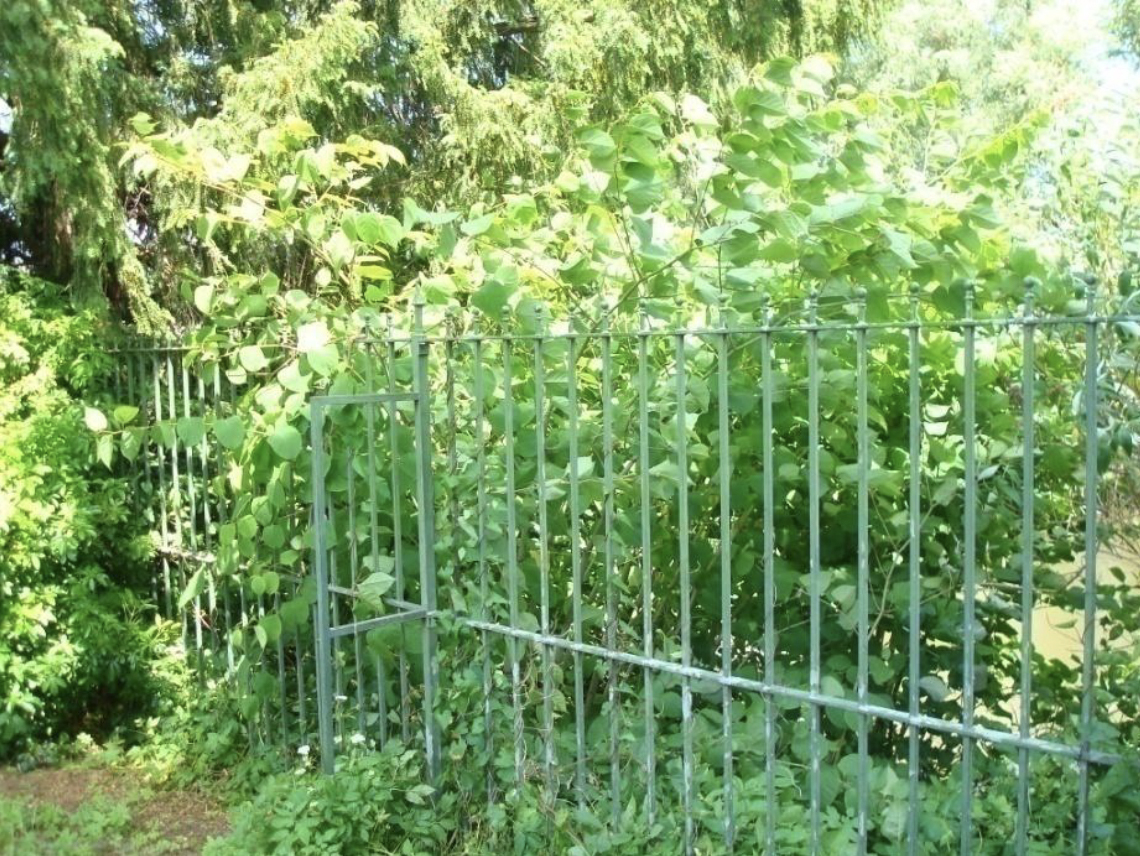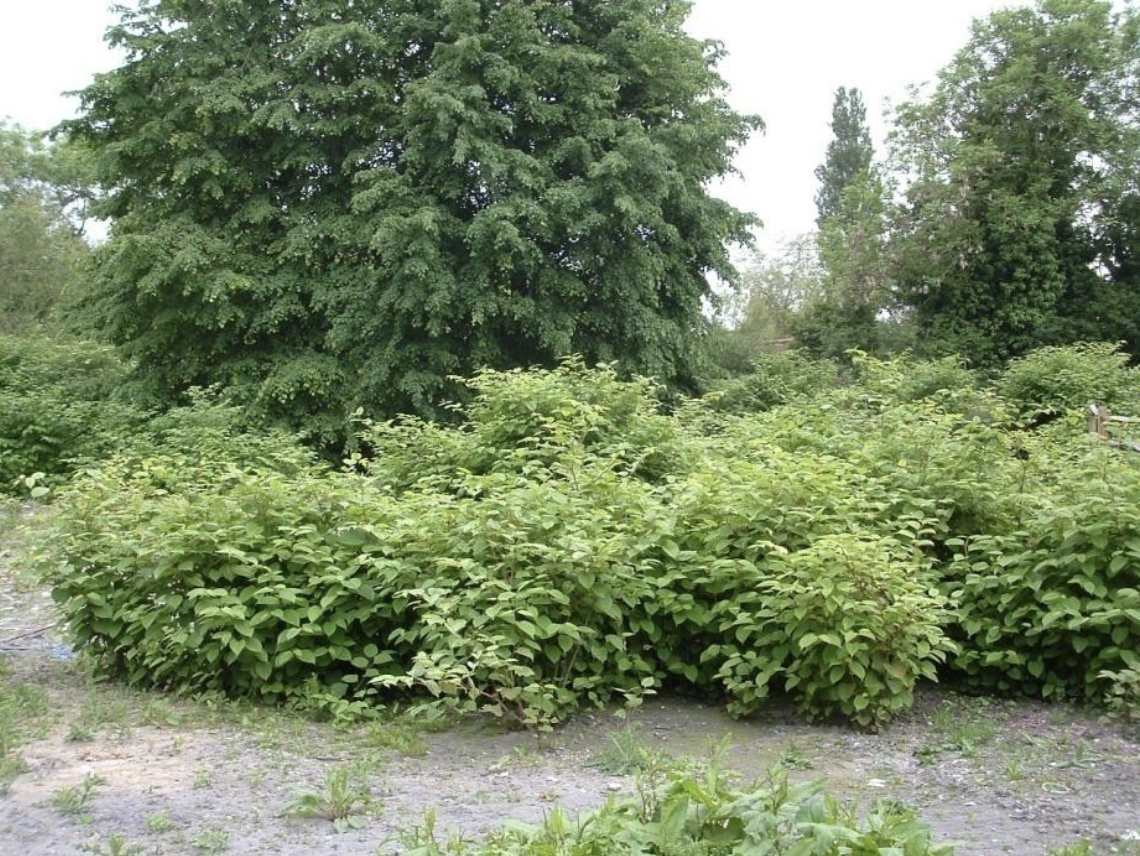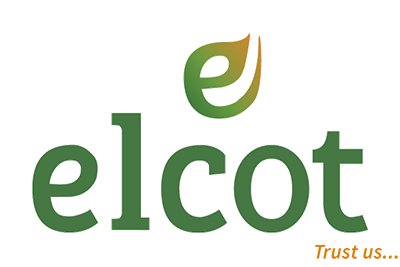How Invasive Plants Affect Property Value & What You Can Do About It

2.5-3m Tall by June

Densely Covered in Yellow Green Leaves
As we reach the height of summer, Japanese Knotweed and other invasive plants are now in full growth across the UK. At Elcot Environmental, we regularly work with homeowners, estate agents, and property developers who are dealing with the financial implications of these unwelcome visitors.
The impact on property value can be significant, but with the right approach, these effects can be minimised or even eliminated.
The Financial Impact: How Much Value Can You Lose?
The presence of Japanese Knotweed and other invasive plants can have substantial consequences for your property’s value:
Direct Devaluation
Research and our experience in the field show that:
– Properties affected by Japanese Knotweed can face devaluation of between 5-15% of their market value
– For the average UK home (approximately £250,000), this represents a potential loss of £12,500-£37,500
– In severe cases where structural damage has occurred, devaluation can exceed 20%
Transaction Complications
Beyond direct value reduction, invasive plants create additional financial challenges:
– Extended Sale Periods: Properties with knotweed typically remain on the market 2-3 times longer than unaffected properties
– Collapsed Sales: We regularly hear from clients whose property sales fell through at the last minute due to knotweed discovery
– Mortgage Refusals: Many lenders will decline mortgage applications or impose strict conditions on properties with knotweed
The Hidden Costs
Even if a sale proceeds, invasive plants can lead to:
– Treatment Costs: Professional remediation typically ranges from £2,000-£5,000 for moderate infestations
– Legal Costs: Potential disputes with neighbours if plants spread across boundaries
– Diminished Land Development Value: Building plots with knotweed present may require costly site preparation
Why Lenders and Buyers Are So Cautious
Understanding the concerns of financial institutions and purchasers helps explain their caution:
Mortgage Provider Policies
Most UK lenders have specific policies regarding Japanese Knotweed:
– Some lenders refuse mortgages outright for affected properties
– Others will lend only if a professional treatment plan is in place with an insurance-backed guarantee
– Most require a surveyor to confirm the distance of knotweed from the property (with the “7-metre rule” commonly applied)
Buyer Perceptions
Even when financing is available, buyer concerns include:
– Future liability if the plant spreads to neighbouring properties
– Potential structural damage to buildings and hard landscaping
– The time and inconvenience of managing treatment programmes
– Stigma associated with the address even after successful treatment
Mitigation Strategies: Protecting Your Property Value
The good news is that with proper management, the impact on value can be significantly reduced:
For Current Homeowners
If you discover invasive plants on your property:
1. Professional Identification and Survey: This provides documentation of the extent of the problem
2. Implement a PCA-Accredited Treatment Plan: Demonstrates you’re addressing the issue responsibly
3. Obtain an Insurance-Backed Guarantee: These typically provide 10 years of coverage, transferable to new owners
4. Document Everything: Keep detailed records of all treatments, correspondence, and guarantees
5. Consider Root Barrier Installation: Particularly valuable for preventing spread to or from neighbouring properties
For Property Sellers
When preparing to sell:
1. Disclose Honestly: Transparency about current or historical knotweed is a legal requirement
2. Pre-marketing Survey: Professional documentation showing the extent (or absence) of invasive plants
3. Have Treatment Quotes Ready: If knotweed is present, having treatment options already costed can reassure buyers
4. Highlight Management Success: If you’ve successfully managed knotweed, make this a positive selling point
5. Consider Price Adjustment: A realistic asking price that accounts for treatment costs can prevent negotiations breaking down
For Property Buyers
If you’re looking to purchase:
1. Commission a Specialist Survey: Standard homebuyer surveys often miss invasive plants
2. Check the TA6 Form Carefully: Sellers must declare knotweed issues here
3. Inspect Garden Boundaries: Pay special attention to the borders with neighbouring properties
4. Negotiate Treatment Costs: If knotweed is present, factor remediation into your offer
5. Consider Specialist Insurance: Some policies now cover knotweed discovery after purchase
Success Stories: Value Recovery After Treatment
At Elcot Environmental, we’ve helped numerous clients restore their property values:
Case Study: Surrey Family Home
A client in Surrey faced a 12% reduction in their asking price due to knotweed discovered during a buyer’s survey. After implementing our:
– Professional treatment plan
– Insurance-backed guarantee
– Root barrier protection
They sold their property at just 3% below the original asking price – recovering approximately £22,500 in value.
Case Study: Development Land in Hampshire
A small development plot was considered “unbuildable” due to extensive knotweed infestation, reducing its value by over 50%. Our comprehensive management plan allowed planning permission to proceed, with the land eventually selling at 85% of its unaffected value.
Beyond Knotweed: Other Invasive Plants Affecting Value
While Japanese Knotweed receives the most attention, other invasive species are increasingly affecting property values:
Bamboo
Fast becoming a significant concern:
– Running varieties can damage foundations and drainage
– Increasingly difficult to insure against
– Some mortgage lenders now specifically asking about bamboo presence
Giant Hogweed
Presents both property and health concerns:
– Contains toxic sap that can cause severe burns
– Creates liability issues for property owners
– Can render garden areas unusable, affecting value
Himalayan Balsam
Though less structurally damaging:
– Can indicate riparian management issues
– May suggest flood risk or water management problems
– Often accompanies other invasive species
The Elcot Environmental Approach to Value Protection
At Elcot Environmental, we don’t just treat plants – we help protect your property investment:
Comprehensive Surveys:
Detailed documentation suitable for mortgage lenders and buyers
Tailored Treatment Plans:
Solutions designed for your specific situation and timeframe
Insurance-Backed Guarantees:
Providing financial reassurance for up to 10 years
Expert Witness Services:
Professional support for property valuation disputes
Developer Packages:
Specialised services for construction and development sites
Selling or Buying a Property?
Don’t let invasive plants derail your transaction or devalue your property. With professional management and appropriate documentation, the impact of Japanese Knotweed and other invasive species can be effectively mitigated.
Call us on 01962 886210 or complete our [online contact form](https://elcotenviro.com/contact/) to book a professional Knotweed survey and ensure complete peace of mind.
At Elcot Environmental, we’re committed to protecting your property investment through expert management of invasive plants. Let our specialists help you maintain your property’s value with effective, guaranteed solutions.
Get a quote
Request a quote for Residential Knotweed Removal - Serving Your Local Area
